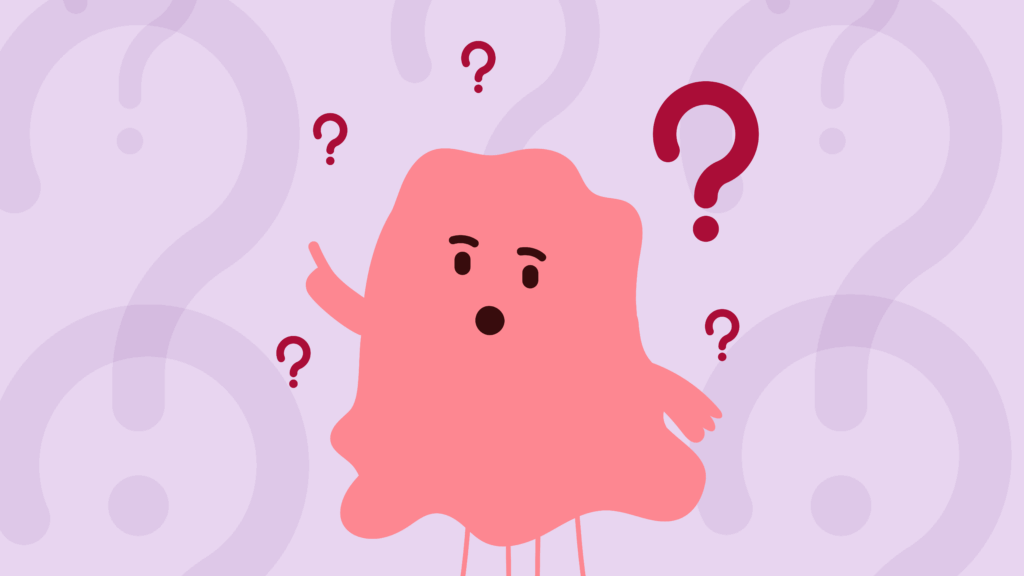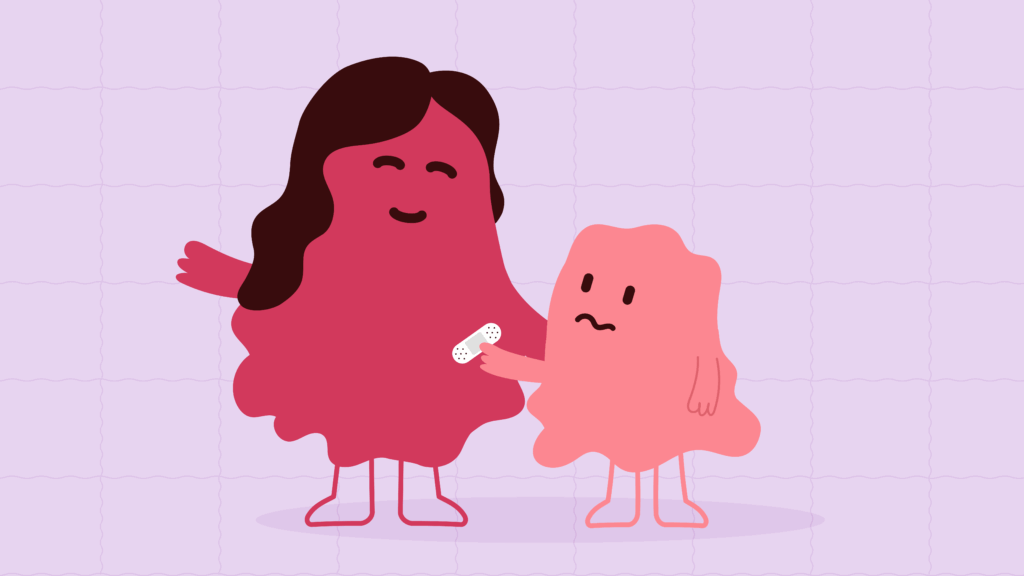


Written by Kelsey Mora, Certified Child Life Specialist (CCLS), Licensed Clinical Professional Counselor (LCPC), Chief Clinical Officer at Pickles Group, and author of The Dot Method: An interactive tool to teach kids about cancer.
Additional free resources for families facing cancer can be found at nbcf.org/parents. Click here to download a printer-friendly version of this blog post.
Parents with cancer often wonder and worry, “How will my child react to hearing the news of my cancer?” or be anxious about difficult conversations that may follow. The truth is, kids will respond in their own way—and that’s not necessarily a bad thing.
Children respond to difficult news differently depending on their age, development, and personality. Here are some common reactions kids have after cancer or other conversations, what they might mean, and what you can do to support them.
Some children may ask a lot of questions right away. This shows they’re ready for more information. Being curious and trying to make sense of things is very normal. Your job is to answer their questions with age-appropriate honesty. And remember, “I don’t know” is also an honest answer. You can always say you’ll find out together, or that you’ll follow up once you know more. The most important thing is to actually follow up when you find the answer.

Some children need time to absorb and digest the information. If they get quiet or seem to distance themselves from the conversation by playing or focusing on something else, they may be showing you that they’re processing. Your job is to acknowledge their needs, remind them that you’re here if and when they want to talk more, and stay consistent. With trust, they’ll come back to the conversation when they’re ready.
Some children act as if nothing has happened, which can be surprising to parents. When kids continue on as usual, it might mean you’ve given them just enough information for now. Your job is to maintain that trust, continue to give updates, and respond to their needs as they arise. Not every child feels rattled by information about cancer, nor do they all want to talk about it right away. That doesn’t mean they don’t care. It likely means your conversation met their current need, and your ongoing presence will remind them it’s okay to revisit the topic.
Some children will have big reactions such as crying, running away, or melting down. This can be tough to witness and may leave you questioning if you did the right thing by telling them. But when children express strong emotions, they’re often telling you that they feel safe enough to show you how they feel, even if they don’t yet have the words. Your job is to be present, validate their emotions, and stay with them as they move through it. You might even name your own feelings, like sadness, fear, or anger, to help normalize their experience and model coping skills together.

Some children may change the subject completely. This is usually a signal that they’ve hit their emotional limit for now. It’s a way of setting a boundary, something many adults are still working on. Just like parents want to protect their kids, kids want to protect themselves and sometimes even their parents. Your job is to acknowledge that it’s hard and remind them that the topic is okay to return to when they’re ready. Gently revisit the conversation as needed, especially around key moments like doctor appointments or major routine changes. In the meantime, stay connected through their personal interests to build trust and comfort, following their lead.
Some kids try to make sense of things or offer ways to “fix” what’s happening. When children jump into problem-solving mode, they’re often searching for control. Your job is to help them distinguish what’s within their control, what’s not, and what their role can be. Offer choices and preparation to foster predictability and agency. You might even explore ways they can help during the cancer experience if that’s empowering for them.

Regardless of how your child responds—whether it’s one of these reactions, a mix of them, or something entirely different—it usually doesn’t mean something is wrong. More often, it means they feel safe and comfortable enough to show you what they need right now.
While their current need for information and support may be met, it’s important to keep in mind that their needs may change throughout their experience. For example, breaking difficult topics into bite-sized conversations for smaller kids is recommended. However, kids may react differently to these topics at different times, ages, stages of their experience, and as they get older.
To prepare for future reactions from your child, consider reminding them how they responded last time before opening a new discussion. You might say something like, “You had a lot of questions about my cancer when we first talked. I have more information for you now, and you may or may not have some questions. I’m here for whatever you need.”Or, “I know you felt like you had heard enough last time we talked about my cancer, but there’s been a change and I want to update you.” Naming what they showed you last time can help preface what is coming next and also validate and normalize their range of experiences.
If your child’s reactions are prolonged or intense, seem out of proportion, or begin to impact daily routines or functioning, it might be time to seek professional support. But in many cases, kids are just being human, reacting to big information in the way their mind and body know how. When conversations are handled with honesty and sensitivity, kids often feel included, connected, and supported.
NBCF is here for parents facing cancer; you are not alone in this journey. For more free resources to help guide children through a parent’s cancer diagnosis, read:
In addition to NBCF, there are other groups dedicated to the emotional well-being of children and families who have a parent facing cancer. Below are a few organizations to consider partnering with on this journey.
National Breast Cancer Foundation is here for you—and your family—as you navigate a breast cancer diagnosis. Visit our website to learn about NBCF breast cancer support groups, obtain free educational resources, or find a patient navigator in your area.
Donations are always appreciated, but there are lots of great ways to get involved.
Reading this made me realize how children respond to tough news in so many different but meaningful ways — from asking lots of questions to seeming totally unfazed — and that none of it means they don’t care. It reminded me that honest, age-appropriate conversations and ongoing support help kids feel included and safe as they process something big like cancer